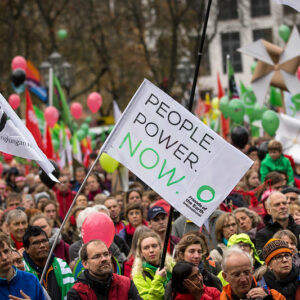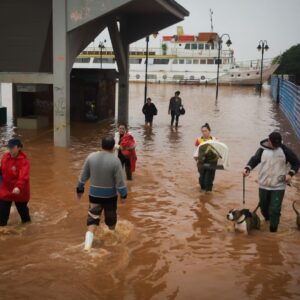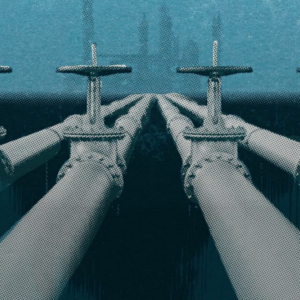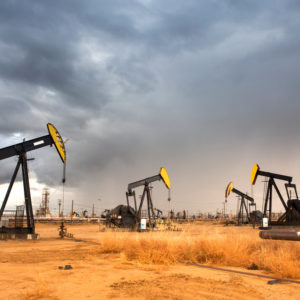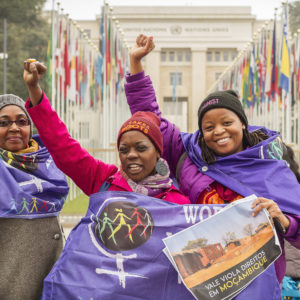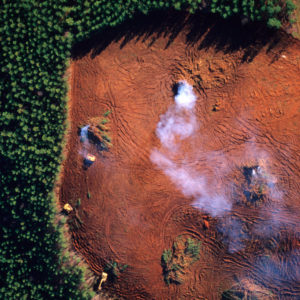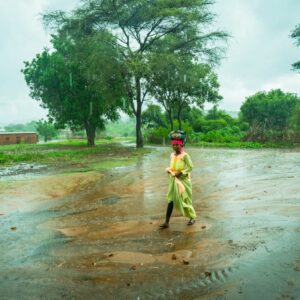
EACOP pipeline: New investigation condemning Total’s practices in Tanzania
Friends of the Earth France and Survie have just released a new report concerning TotalEnergie’s EACOP project. "EACOP, a disaster in the making" is the result of a ground-breaking field investigation into Total's giant oil pipeline project in Tanzania.
New testimonies 1 show the same types of human rights violations that have been identified in Uganda, some even worse in certain respects. While yesterday’s hearing on the merits of the case at the Paris civil court concerning the civil society organizations’ lawsuit against Total, based on the French duty of vigilance law 2 has been postponed to December 7th 2022, this report has been added to the judicial file. It provides new and unprecedented evidence of the unacceptable human, climate and environmental costs of this oil mega-project.
While the environmental and human impacts of the EACOP project have already been widely documented in Uganda 3, it is almost impossible for civil society organizations or journalists to investigate in Tanzania because of the strong surveillance by the authorities. However, two-thirds of the route of this giant heated pipeline must cross this country, to bring the crude oil extracted in Uganda to the port of Tanga in Tanzania, from where it will be exported. The report « EACOP, a disaster in the making » by Friends of the Earth France and Survie is therefore ground-breaking.
It comes in support of the many voices already denouncing Total’s mega-oil project and calling for it to be stopped: communities directly affected in Uganda; civil society in East Africa, but also around the world, united in the #StopEacop coalition. On September 15, the European Parliament adopted an emergency resolution also condemning this project 4.
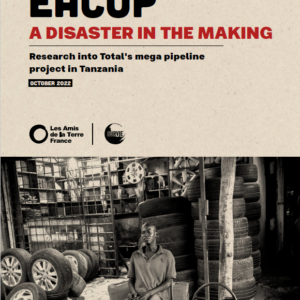
EACOP : A disaster in the making
« Civil society organizations and journalists are totally hampered while investing and documenting the EACOP project in Tanzania, because of the extensive surveillance system set by the authorities, which also made the conditions for our investigation very difficult. »
He adds : « It highlights the fact that Total’s practices are even worse than in Uganda, and are falling far short of the recommendations and international standards that the French supermajor claims to comply with. From the shores of Lake Victoria to the Indian Ocean, in all the regions affected by this future pipeline, the affected communities are expressing their feelings of powerlessness and injustice in the face of the practices of the oil developers, who are flouting their most fundamental rights, ».
Civil society is virtually non-existent in Tanzania and dissenting voices are silenced by the regime. In this context, the EACOP project is being developed through the systematic grabbing of Tanzanian communities’ land along the pipeline route: in this country only, the land of nearly 62,000 people is affected 5. Since land is their main source of revenue and livelihoods, the human impact is dramatic. Numerous testimonies compiled in this report describe the land grabbing process: communities not consulted and not well informed, land taken at an unfair price, the impossibility to freely cultivate their land even before the payment of compensations, which have been pending for more than three or even four years.
This investigation focusing on the Tanzanian section of EACOP also highlights the environmental threats the project implies, particularly on the Indian Ocean coast where the pipeline will end. Total plans to build the oil export infrastructures from which the oil tankers will be loaded. The Indian Ocean is a risk zone for tsunamis and cyclones, and this risk is increasing with global warming. The risk of a major oil spill, which would irreparably affect the rich biodiversity of the marine protected areas around the oil terminal, is extremely high.
« Even more than Uganda, which is also under an authoritarian regime, Tanzania is the very example of a country where transnational corporations like Total should not develop projects of this scale, because they will inevitably cause numerous human rights violations. »
Juliette Renaud continues : « In addition to triggering a climate bomb, developing this mega-project means creating major risks of oil spills in the Indian Ocean, and Total has not elaborated any adequate measures to avoid them! This is simply unacceptable: the project must be abandoned, and remedies must be provided to affected communities”.
Pauline Tétillon, co-chair of Survie, concludes: « Citizen mobilization around the world is growing daily against Total’s oil exploitation in Uganda and the EACOP pipeline. Many banks have refused to finance this shameful project, the European Parliament has even called for its suspension… But meanwhile, the situation on the ground is getting dramatically worse, as this investigation in Tanzania shows. The legal battle started three years ago must allow us to put an end to these violations and prevent an environmental disaster”.
Key date:
December 7th at 9.30am: Hearing at Paris civil court (Tribunal judiciaire de Paris)
The report « EACOP: a disaster in the making » is available through this link.
Following the ruling of the Cour de Cassation (French Supreme court) in December 2021, rejecting the jurisdiction of the Commercial Court, the merits of the case will finally be heard: the hearing, initially set for yesterday October 12th, has been postponed to December 7th 2022 at 9:30a.m. Paris time, at the Paris civil Court.
About Uganda, see the previous report by Friends of the Earth France and Survie, « A nightmare named Total« (2020).
The European Parliament resolution is available through this link.



